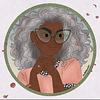Take a photo of a barcode or cover
157 reviews for:
Animals in Translation: Using the Mysteries of Autism to Decode Animal Behavior
Temple Grandin
157 reviews for:
Animals in Translation: Using the Mysteries of Autism to Decode Animal Behavior
Temple Grandin
My first audiobook on my iPad. Extremely interesting, fascinating, compelling information. If you've ever had a dog, you'll want to read this. Temple Grandin breaks down the connections between humans and animals, and why autistic people can identify with and relate to animals. It's so much more than that. Excellent book.
Temple Grandin is an inspiration to me for so many reasons, one of which is her ability to put many of life’s most seemingly ordinary concepts into new and thought-provoking perspectives. As humans, we tend to take for granted so much of our “knowledge” and make assumptions about the complex workings of our world that aren’t necessarily based on anything but our own bias, blindness, and ego.
Grandin, on the other hand, has this wonderfully natural proclivity for asking questions that are simultaneously provocative, but also beautifully and brilliantly simple. She reigns us in and reminds us to pay attention to the many details we overlook in our lives and in our relationships with the creatures and creations that surround us.
More than anything else, I admire Temple Grandin for the respect she demonstrates for the life (and death) of the animal companions that have accompanied us on our journey through evolution for so many thousands of years. She has a beautiful way of honoring and valuing their existence that not many people do, and in so many ways I hope to emulate her universal and practical compassion.
Grandin, on the other hand, has this wonderfully natural proclivity for asking questions that are simultaneously provocative, but also beautifully and brilliantly simple. She reigns us in and reminds us to pay attention to the many details we overlook in our lives and in our relationships with the creatures and creations that surround us.
More than anything else, I admire Temple Grandin for the respect she demonstrates for the life (and death) of the animal companions that have accompanied us on our journey through evolution for so many thousands of years. She has a beautiful way of honoring and valuing their existence that not many people do, and in so many ways I hope to emulate her universal and practical compassion.
Filled with insights about both animals and people. I can see reading this again in a year or so to get more out of it.
medium-paced
This book reflects Dr. Grandin's voice. I could hear her in all the glorious details. As an academician, I would have preferred a more carefully referenced work, but I can appreciate her wanting to hold back on them to make the book more appealing to a broader audience.
informative
reflective
medium-paced
I think I learned as much about humans as animals from this, and regardless it is a really fantastic book.
The book wasn't at all what I expected. I wasn't sure what I expected to be honest. But this basically consisted of her talking about theories that she has about animals or autistic people and bringing up studies that back up her theories. She had interesting theories though. However, she was really rambly at points and she repeated herself, a lot. Like how she talked about how violent pitbulls and rottweilers are over and over again. It really annoyed me.
Overall I'm glad I read it but wont ever read it again, and probably wont read any of her other books.
Overall I'm glad I read it but wont ever read it again, and probably wont read any of her other books.
informative
medium-paced
I know of Temple Grandin as a famous autistic woman, and, after seeing a picture book at the library featuring her hug machine, I was interested in getting a more substantial taste of her work. "Animals in Translation" was definitely worth the read. I learned a lot about both Temple Grandin and the subject of animal behavior, from farm animals such as cows, horses, and pigs to more common household pets such as dogs and cats.
My biggest gripe with this book is likely an issue of datedness. "Animals in Translation" is nearly twenty years old now, and I'm not quite sure when the word "allistic" became popular. Still, it irked me to hear non-autistic people constantly referred to as "normal people." I was also disgruntled when Temple Grandin made generalizations about autistic people, taking her own experiences and presenting them as "the" autistic way of being. I enjoyed hearing about how she thinks in pictures, for example, but I don't think it's fair to say that all autistic people think in pictures, while all allistic people think in words and fully-formed sentences. I'm sure that more people's experiences with autism have been shared in the past couple of decades, so the idea of what traits are autistic or not has likely been expanded in the years since this book's publication. I'm not mad at Temple Grandin; I'm just put off by what I hope are outdated ways of discussing autism (calling allistic people "normal" and clumping autistic experiences beneath a single monolith).
Regardless, I enjoyed Temple Grandin's observations on what makes autistic people and animals similar. I stand by the fact that humans are animals, too, but I relate to what Grandin experienced: feeling more at ease around non-human animals than around other humans, especially at a young age, and being able to understand why our pets are unsettled better than my family members. One of my favorite lines in the book comes from the very end: "People were animals too once, and when we turned into human beings, we gave something up. Being close to animals brings some of it back." Again, I would argue that human beings are animals, but the sentiment expressed here still resonates with me.
My other gripe with this book is a topic upon which Temple Grandin touches only briefly: albinism. She talks about the issues that arise in animals with white skin and blue eyes then clarifies that this does not apply to white humans. Having light skin or light eyes is not the same as having albinism; some pigment is better than none. But there are humans with albinism, too, and I want to know how Temple Grandin's statements apply to us.
If she's referring to the physical problems associated with albinism (increased risk of skin cancer, photosensitivty, vision issues), then I suppose I can't argue: You probably shouldn't breed a dog specifically for these traits. Even if the appearance is appealing, you should not prioritize your aesthetics over a living creature's well-being. But it sounded as though Grandin were critiquing the personality of animals with albinism, and this puts me on the defensive. I'd need to hear more about her thoughts on the subject before I could properly critique it, but this section left a bad taste in my mouth.
Even so, I like this book. It addresses many topics that I've never thought to learn more about: the dangers of single-trait selection in livestock, for example, as well as the correlation between fear, curiosity, and intelligence. I'm taking some of Grandin's observations with a grain of salt, but I still appreciate her work and am glad for the opportunity to expand my horizons. Now I know more about a person who's intrigued me for years, as well as the animals that I love so dearly.
My biggest gripe with this book is likely an issue of datedness. "Animals in Translation" is nearly twenty years old now, and I'm not quite sure when the word "allistic" became popular. Still, it irked me to hear non-autistic people constantly referred to as "normal people." I was also disgruntled when Temple Grandin made generalizations about autistic people, taking her own experiences and presenting them as "the" autistic way of being. I enjoyed hearing about how she thinks in pictures, for example, but I don't think it's fair to say that all autistic people think in pictures, while all allistic people think in words and fully-formed sentences. I'm sure that more people's experiences with autism have been shared in the past couple of decades, so the idea of what traits are autistic or not has likely been expanded in the years since this book's publication. I'm not mad at Temple Grandin; I'm just put off by what I hope are outdated ways of discussing autism (calling allistic people "normal" and clumping autistic experiences beneath a single monolith).
Regardless, I enjoyed Temple Grandin's observations on what makes autistic people and animals similar. I stand by the fact that humans are animals, too, but I relate to what Grandin experienced: feeling more at ease around non-human animals than around other humans, especially at a young age, and being able to understand why our pets are unsettled better than my family members. One of my favorite lines in the book comes from the very end: "People were animals too once, and when we turned into human beings, we gave something up. Being close to animals brings some of it back." Again, I would argue that human beings are animals, but the sentiment expressed here still resonates with me.
My other gripe with this book is a topic upon which Temple Grandin touches only briefly: albinism. She talks about the issues that arise in animals with white skin and blue eyes then clarifies that this does not apply to white humans. Having light skin or light eyes is not the same as having albinism; some pigment is better than none. But there are humans with albinism, too, and I want to know how Temple Grandin's statements apply to us.
If she's referring to the physical problems associated with albinism (increased risk of skin cancer, photosensitivty, vision issues), then I suppose I can't argue: You probably shouldn't breed a dog specifically for these traits. Even if the appearance is appealing, you should not prioritize your aesthetics over a living creature's well-being. But it sounded as though Grandin were critiquing the personality of animals with albinism, and this puts me on the defensive. I'd need to hear more about her thoughts on the subject before I could properly critique it, but this section left a bad taste in my mouth.
Even so, I like this book. It addresses many topics that I've never thought to learn more about: the dangers of single-trait selection in livestock, for example, as well as the correlation between fear, curiosity, and intelligence. I'm taking some of Grandin's observations with a grain of salt, but I still appreciate her work and am glad for the opportunity to expand my horizons. Now I know more about a person who's intrigued me for years, as well as the animals that I love so dearly.
challenging
hopeful
informative
inspiring
reflective
medium-paced




